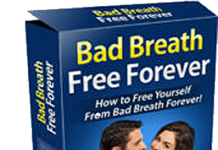Published on Mar 26, 2013
Superfood Profile: Discover the Health Benefits of Bee Pollen
Before our modern age of sterilization and sanitation, traditional medicine was based on healing herbal and food remedies that may seem eccentric by our “civilized” standards. And while substances like bee pollen were highly prized at one time, today the idea may seem quite bizarre at first glance. Bee pollen, however, is one of nature’s best kept secrets.
Beekeepers of old knew this, and considered honey rich in pollen to be a source of health and longevity. A prime example is the beekeepers native to the Caucasus Mountains that stretch between the Black and Caspian Seas. These people, many of whom lived on a diet rich in honey filled with bee pollen, exhibited fine health and often lived well over 100 years old.
Bees package their pollen with nectar and enzymes that help it develop into a powerful superfood. In fact, bee pollen contains thousands of enzymes and co-enzymes which are necessary for true vitality. Bee pollen also contains 22 amino acids, including the eight essential ones. It is, in essence, a complete protein. You’ll also find dozens of vitamins and minerals in bee pollen, as well as natural hormones and important fatty acids.
While science has yet to thoroughly examine bee pollen for its benefits, many people have successfully used it to treat a variety of ailments, including:
– Asthma
– Indigestion, diarrhea, constipation and other digestive issues
– Anemia
– Low energy and fatigue
– Depression
– Skin conditions such as acne
– Sexual problems
– Hemorrhoids
– Obesity
– Rheumatism and arthritis
Bee pollen is also useful for improving the health of the heart, prostate, immune system and nervous system.
One of bee pollen’s many intriguing benefits is its ability to improve allergies. It seems counterproductive to fight pollen allergies with pollen, but bee pollen seems to have an immunizing effect against these reactions. If you use bee pollen to treat allergies, proceed with care and start with only two or three granules per day. Slowly increase dosage as long as there is no reaction. However, those with a history of anaphylactic reactions should avoid bee pollen.
Even those without allergies should start with a small dosage of bee pollen to prevent any reactions as the body adjusts to the unique nutrients it’s receiving. Gradually work up to a maintenance dose of about one tablespoon per day.
Selecting the right bee pollen makes all the difference in the benefits you receive. Here’s some tips:
– Bee pollen can be taken in capsules or tablets, but bee pollen in granules is ideal. Pure, raw honey is also an excellent natural source of bee pollen.
– Look for color variations in bee pollen granules. This is preferred to a single color, because a variety of colors means a variety of sources. This provides a broader range of nutrients.
– Heat processing can destroy the enzymes and nutrients in the pollen, so it’s important to choose a manufacturer that handles the bee pollen with the intent of preserving its valuable nutrients.
Source: http://www.naturalnews.com
Category
People & Blogs
License
Standard YouTube License









